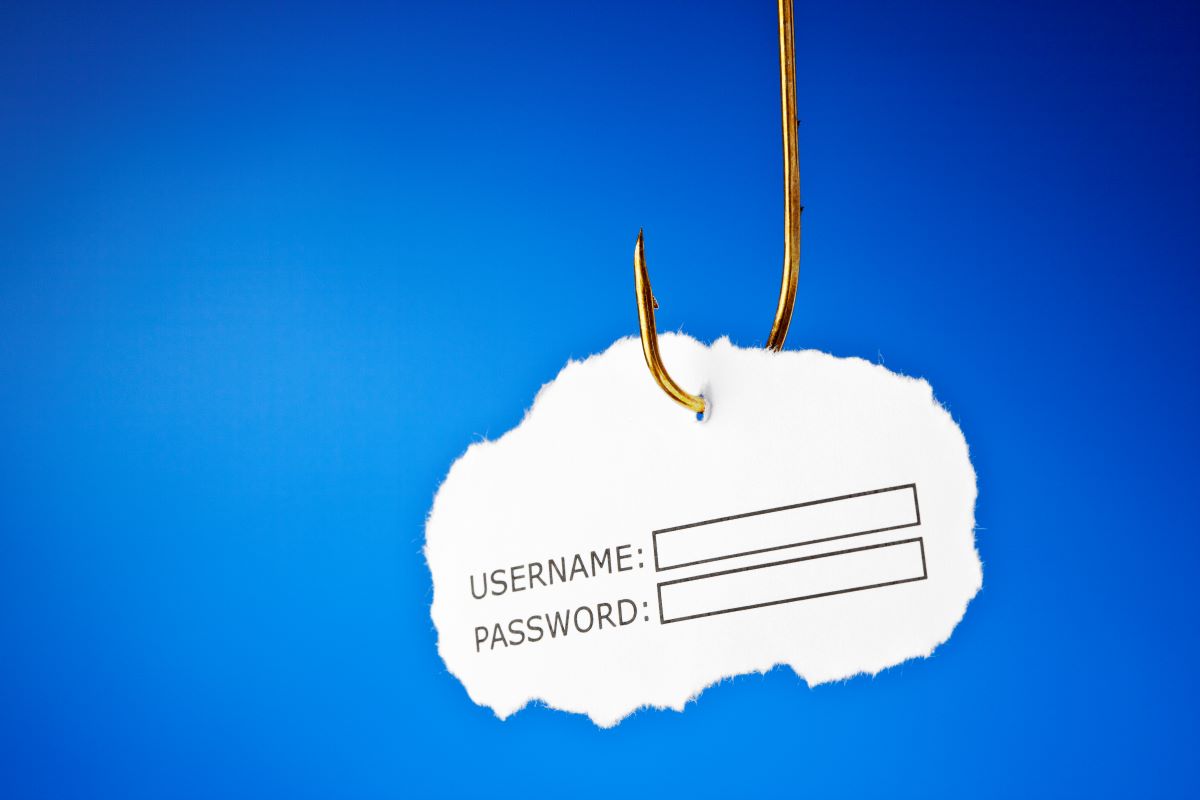When we get an email from a prince in a foreign country asking us to wire money, most of us identify that scam pretty quickly. Unfortunately, the world of scam emails has become much more sophisticated, and not everyone knows how to tell if an email is a scam.
Now hackers are using malicious links in emails to attempt to gain access to your networks and data. Phishing emails are a growing problem and victims include the Democratic National Committee, Sony Pictures, Facebook, and even Google.
According to the Federal Trade Commission (FTC), “Scammers launch thousands of phishing attacks like these every day — and they’re often successful.”
You might be wondering, “How can I tell if an email is legitimate?” The good news is that you don’t have to fall victim to a cyberattack if you learn how to tell if an email is fake.
How To Tell If An Email Is a Scam

1. Something is “off” about the email.
If you look closely enough, scam emails usually have a tell-tale sign that they are fake. These signs could include poor-quality graphics, misspellings, or improper grammar. This is the first line of defense in how you can tell if an email is from a scammer.
2. The sender’s email address is suspicious.
If you have any doubts about the email, check the actual email address of the sender. It’s one of the best ways to know how to tell if an email is a scam. It’s important to look past the content and at the email address. For instance, the sender of an email might say it’s from Amazon, but when you look closer, the actual email address might be something like thomas35J7@ammazoon.outlook. When you look at the actual address, it’s usually pretty clear if it’s a hacker.
3. There is a sense of urgency.
Whenever you get an email telling you an account has been shut down or frozen, you should be suspicious. Or, ironically, you might get an email saying you’ve been hacked, and you need to change your password immediately. Whatever the message, slow down and be cautious. Hackers are counting on your panic to override your caution.
Christopher Hadnagy, author of Phishing Dark Waters: The Offensive and Defensive Sides of Malicious Emails, says in his TedTalk, “So the next time you feel emotional about an email, a text message, a phone call, or a person you meet, just tell yourself it’s okay to wait. A short pause can return your brain back to critical thinking.”
Watch this fascinating TedTalk about the psychology behind why we easily fall prey to phishing emails.
If you think the notice could be legitimate, delete the email and then go directly to the website through your browser and investigate further there. Or you could call the company’s customer service line. However, it is best to avoid clicking links in emails that contain alarming news.
4. It’s too good to be true.
We all love surprises, let’s face it. If you get an email saying you won $1,000, but you never enter giveaways, it’s probably fake. Other variations of this might be “you’ve received a payment” or “you’re due to get a government refund.”
So What Is a Protection Against Internet Hoaxes?
Make Sure Your Software is Up-To-Date
When security software is installed and kept up-to-date, it will filter many malicious emails.
Educate Yourself and Your Employees on How To Check If An Email Is Safe
Encourage a culture of caution when it comes to email communication. Educate your employees about phishing emails and how to tell if an email is a scam. Here’s a good place to start.
Don’t Click on Suspicious Links
Don’t click on links that are sent to you by an unknown party, and be aware of emails that are counterfeit emails of a legitimate company. If you have any questions, it’s a good idea to check the email address of the sender.
Put Procedural Safeguards in Place
Even if you receive a link from someone within your company, it may be a phishing email, especially if the sender is asking for a payment or sensitive information that they normally would not ask for. Implement safeguards within the company around payments and sensitive information, which might include confirming any such requests with a follow-up phone call or a face-to-face conversation.
Trust Your Gut
Slow down and take the time to trust your gut. If something seems “phishy” don’t click any links! If you haven’t spoken to Aunt Nettie in seven years, your first contact with her probably won’t be a link to a website. If the email is from Netflix, but the brand colors are blue, investigate a little further. If you see a typo, it may be a red flag. Trust your gut!
Don’t Worry, There’s Help Available!
At SandStorm IT, we’ve made it our mission to ensure that businesses can survive whatever IT issues come their way. We love partnering with businesses in the Greater Memphis area (including East Memphis, Collierville, Germantown, and Bartlett) on their IT. Schedule a call to discuss how we help you with all of your IT needs.

